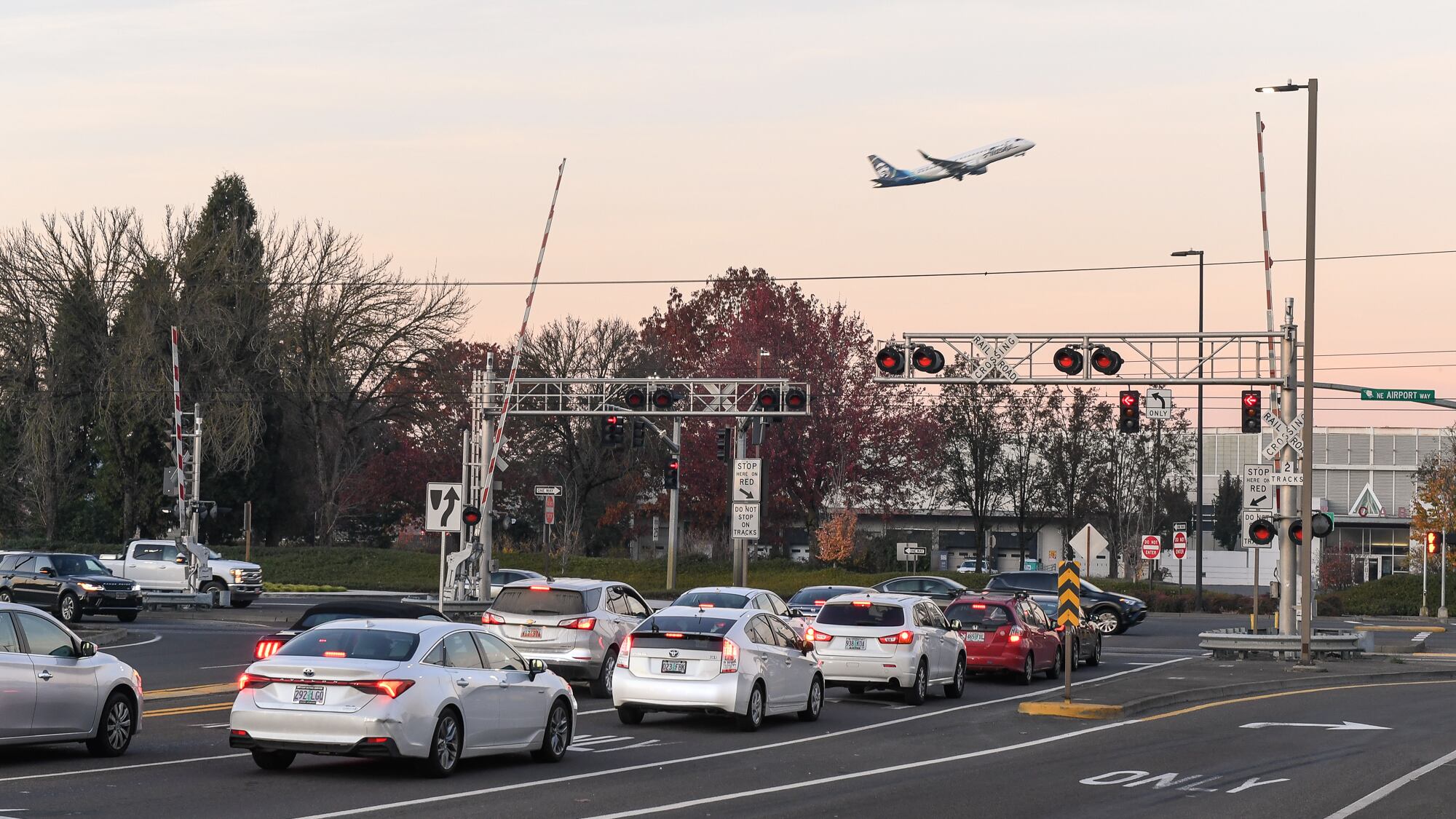For the past two years, a group of Portlanders worried about climate change has thrown sand in the gears of the largest transportation project in the region.
The group achieved a victory this summer, forcing the Oregon Department of Transportation to delay a planned $500 million expansion of Interstate 5 through the Rose Quarter to study its effects on the environment. That conquest put Portland leaders on notice that the rules of the road for transportation projects may have changed.
Even massive, state-funded projects aren't an easy political win—if they move more cars.
Now climate activists are focused on shaping a regional transportation measure to be referred to voters next year—and want a guarantee that the $3 billion measure won't help more cars move more swiftly through the Portland region.
"No one planning to be alive in the decades ahead should find it acceptable to compromise on climate just to win a measure," writes Eliza Schiff, an 18-year-old Sunrise Movement activist, who testified at a Metro public hearing last week.
The Metro Council boardroom was lined with red-clad activists from 350PDX, another climate change activist group that urged members in an email to attend: "Metro has failed us—and we need your help! We need a green new deal for transportation, not billions of dollars for fossil fuel car infrastructure."
At press time, the regional government Metro was still awaiting election results for its current ballot measure, which would spend $475 million on outdoor spaces. But the transportation measure, which would go on next November's ballot, presents a far more difficult challenge.
Metro appears to understand that the fate of its transportation measure rests in part on whether the same climate groups that opposed the Rose Quarter highway widening in August 2017 are going to fight this, too. Perhaps that's why Metro publicly calculated last month that the proposals include more than $1.79 billion for reducing greenhouse gases.
At the same time, Metro must also appeal to drivers in three counties: Multnomah, Washington and Clackamas. Many car-dependent suburban voters might oppose the measure, given that nearly a third of the measure would fund a new light rail line, and some view MAX trains as harbingers of Portland liberalism and crime.
While Metro planners are in fact proposing to include a number of car-free projects in the measure—like bus lanes along Tualatin Valley Highway and new sidewalks along Northeast 82nd Avenue, in addition to light rail—some pieces of the measure do address autos.
One of them: a chokepoint at an intersection less than a mile from Portland International Airport.
Early plans for the measure dedicate $35 million for an overpass at Northeast 82nd Avenue and Airport Way. That's an intersection where traffic regularly snarls. The Port of Portland, which runs the airport wants to unclog the jam, by adding a lane and constructing a bridge for traffic along the light rail line.
"People coming to PDX—whether for work or travel—need choices in how they arrive," says port spokeswoman Kama Simonds. "The congestion at 82nd and Airport Way is already significant, and we expect it to worsen considerably without this improvement."
The Port of Portland can provide the rest of the funding after Metro chips in the first $35 million. (The total price tag for the overpass is $87 million.)
The port is a powerful economic engine for the city, and the airport is its gem—a gateway where the port expects the number of travelers to nearly double by 2045.
But the effort to make it easier to drive to the airport is attracting critics.
"Ironically, what that's doing is undercutting the investment we have made in transit," says Joe Cortright, an economist with a track record of successfully opposing the Columbia River Crossing and the Rose Quarter highway expansion.
"What we ought to be doing is encouraging people to use the light rail line that we actually have there."
Cortright and others, including a coalition of environmental and social action nonprofits, have criticized the airport project and others that would improve conditions only for cars.
"Funding from this measure should be dedicated to increasing options and incentives for more transit and shuttle options," said the Getting There Together coalition in a statement released last month.
One of the group's organizers says the airport project failed several tests
"It wasn't clear what the benefit would be to low-income communities," says Kari Schlosshauer, policy manager with the Safe Routes Partnership and a spokeswoman for the Getting There Together coalition. "It wasn't clear what the safety benefit was."
To be sure, Metro say it supports reducing greenhouse gases—but as one of many goals for the transportation measure.
Andy Shaw, Metro's director of government affairs, says the measure has "a wide array of outcomes and goals we're trying to achieve, including addressing climate change, including addressing past inequities, including mobility reliability." He adds: "This [airport] project clearly fits the category of improving mobility, addressing growth in the region."
